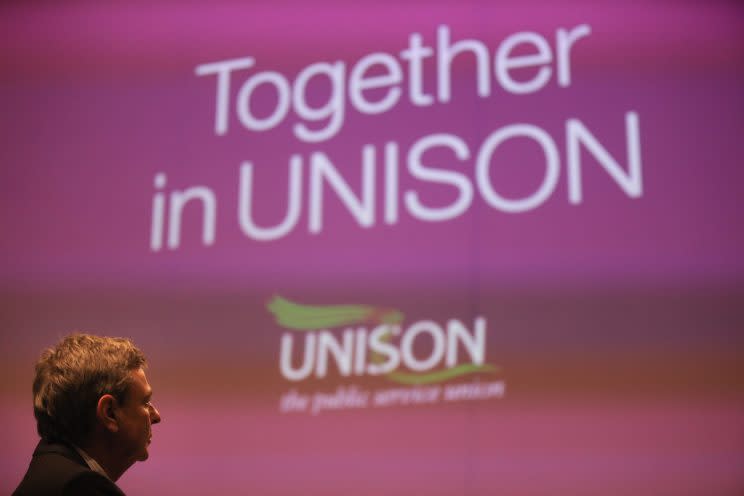Govt to refund more than £27m to thousands of workers after tribunal fees declared 'illegal'

Trade union Unison has won a ‘landmark’ court victory against the government over controversial fees paid out by claimants to take their case to an employment tribunal.
The Supreme Court ruled in favour of the union, which had argued that the fees of up to £1,200 discriminated against women and other groups of workers.
Unison said the decision means that employment tribunal fees will now be scrapped.
The Supreme Court unanimously ruled that the Government was acting unlawfully and unconstitutionally when it introduced the fees four years ago.
MORE: Drivers’ personal details sold by DVLA to parking firms
Unison said the Government will have to refund more than £27 million to the thousands of people charged for taking claims to tribunal since July 2013, when fees were introduced by Chris Grayling, the then Lord Chancellor.
General secretary Dave Prentis said: “The Government is not above the law, but when ministers introduced fees they were disregarding laws many centuries old, and showing little concern for employees seeking justice following illegal treatment at work.
“The Government has been acting unlawfully, and has been proved wrong – not just on simple economics, but on constitutional law and basic fairness too.
“It’s a major victory for employees everywhere. Unison took the case on behalf of anyone who’s ever been wronged at work, or who might be in future. Unscrupulous employers no longer have the upper hand.
MORE: 2,529 products are now smaller but cost the same
“These unfair fees have let law-breaking bosses off the hook these past four years, and left badly treated staff with no choice but to put up or shut up.
“We’ll never know how many people missed out because they couldn’t afford the expense of fees, but at last this tax on justice has been lifted.”
Unison’s assistant general secretary Bronwyn McKenna said: “The Supreme Court correctly criticised the Government’s failure when it set the fees to consider the public benefits flowing from the enforcement of legal rights enacted by Parliament.
“The effective enforcement of these rights is fundamental to Parliamentary democracy and integral to the development of UK law. Unison’s case has helped clarify the law and gives certainty to citizens and businesses in their everyday lives.”
The decision marks the end of a four-year fight by Unison to overturn the Government’s introduction of fees.
MORE: Employees reveal their most embarrassing moments in the workplace
David Isaac, chairman of the Equality and Human Rights Commission, called for the current policy to be scrapped.
“The right to justice must be based on the merit of your case, not your ability to pay.
“Thousands may have been denied of this right and priced out of getting justice. The judgement of the Supreme Court is a damning verdict on the current regime.
“It is a licence to discriminate for employers and must be scrapped. The law only works if people know that it is a fair and just system and the biggest and strongest will not always win.
“Women face a double penalty with high fees and short time scales to bring maternity discrimination cases.
“The time limit should be extended to six months rather than new mothers having the added pressure of having to rush to make a claim,” he said.
The Commission provided expert independent legal arguments during the case.
A review of the impact of the fees earlier this year showed there had been a 70% drop in the number of cases since they were introduced in 2013.
Jonathan Bartley, Green Party co-leader, said: “Employment tribunal fees block workers from accessing justice. The Government must scrap them in light of the Supreme Court’s judgement.”

 Yahoo Finance
Yahoo Finance 